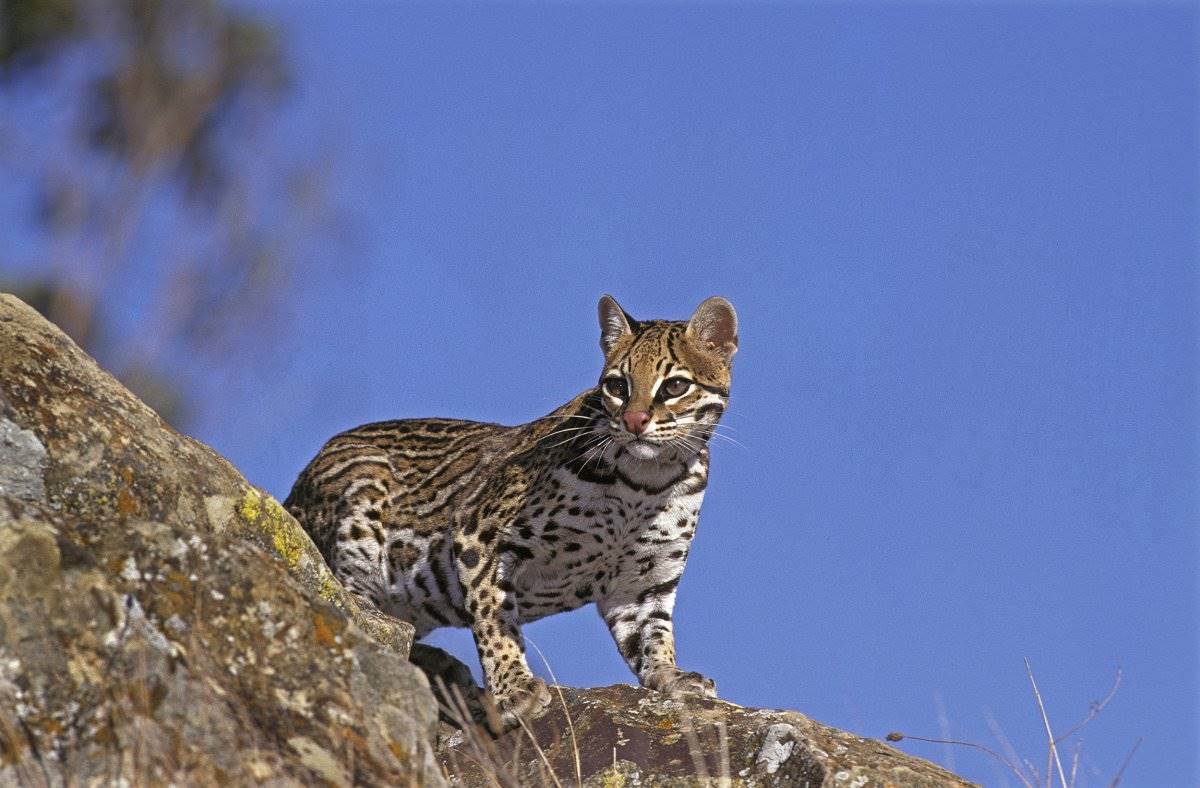It has been suggested by scientists that there may be more ocelots in Texas than previously believed. In 2021, an unfortunate ocelot was discovered to have been hit by a car in Hidalgo County, just south of Linn, Texas, which is approximately 50 miles from the known ocelot population in Texas. A DNA test conducted on the deceased ocelot revealed that it was closely related to wild ocelots native to the U.S.-Mexico borderlands region, but had more unique genes. This discovery suggests that the range of these animals could be broader than originally thought. Sharon Wilcox, an expert in ocelot conservation and senior Texas representative for Defenders of Wildlife, stated that "The results suggest that this cat possibly occupies a region of South Texas not yet known to ocelot researchers.
" Wilcox also pointed out that "Hidalgo County may have more ocelots present in its more remote sections where appropriate habitat and access to prey exists." Ocelots are rare wild cats in Texas, with one being found miles outside its typical range. These small wild cats, about twice the size of domestic housecats, can measure up to 3.5 feet in length and weigh up to 35 pounds. Once widespread across Texas, the ocelot population is now very small and federally endangered due to years of hunting, trapping, and poisoning. Currently, there are thought to be fewer than 100 remaining in the wild, mainly in two isolated populations in southern Texas, particularly on protected lands like the Laguna Atascosa National Wildlife Refuge.
Ocelots rely on a thorn-scrub habitat for denning and hunting, but this environment has been significantly fragmented due to agricultural development, urban expansion, and infrastructure projects, restricting their range and movement. The discovery of the ocelot far from its known location, and in an area with the same thorn-scrub ecosystem necessary for their survival, suggests that there may be more ocelots living in Texas unbeknownst to conservationists. Tom deMaar, a former Gladys Porter Zoo veterinarian and Board member of the Friends of Laguna Atascosa National Wildlife Refuge, expressed his wonder, stating "It makes you wonder; how many more ocelots are hidden out there? This is the first time there's been confirmed evidence of an ocelot outside its range.
" The primary threats to Texas ocelots include habitat loss and fragmentation, road mortality, and potential genetic inbreeding due to isolated populations. Vehicle collisions are a significant concern as ocelots frequently traverse roads that intersect their already constrained habitat. Sharon Wilcox emphasized the importance of being cautious while driving in ocelot-occupied areas, urging motorists to slow down and be vigilant, particularly from dusk to dawn. This discovery provides valuable insights into ocelots in Texas and serves as a poignant reminder of the need to protect these endangered creatures from harm.






















